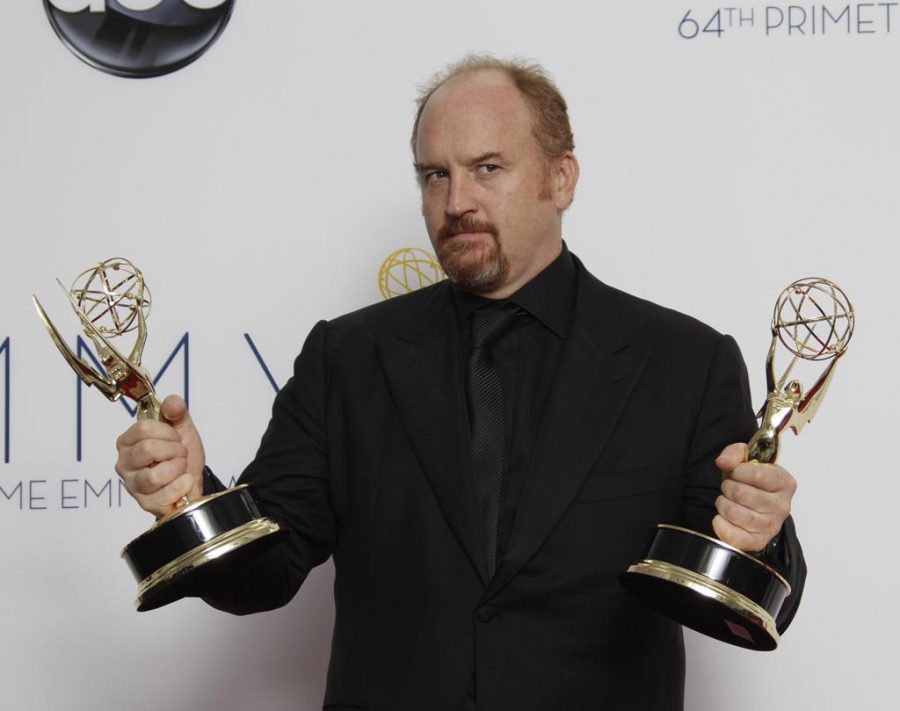If anyone is able to marry comedy and tragedy effectively, it’s Louis C.K., but never has he done it so deftly as with “Horace and Pete.”
The exploration of family and human life through the ancestral owners of a century-old bar and their customers is the comedian’s boldest and most mature creative work to date.
Ten episodes make up the first — and, if C.K. doesn’t change his mind, only — season of the series. After releasing the first episode of “Horace and Pete” late last January exclusively through his website, the final episode of the season premiered in early April. C.K. recently announced that he is taking a break from his popular FX show “Louie,” so the possibility of returning for a sixth season of the sitcom, or another season of “Horace and Pete,” still looms.
Entirely self-funded, kept secret until its release date and free from the touch of any network, the show is a challenge to the current distribution model of television and other visual mediums.
C.K. went into debt early on in the production of the web series, with each episode costing him half a million dollars to produce. After announcing the conclusion of the show a few days prior, he assured the public in late April that he is far from bankruptcy. C.K. has earned his money back straight from his fans, keeping up with the direct-to-consumer distribution model of his more recent works. Each episode comes with a small price tag, the first being $5, the second $2 and the rest $3.
“Money grows back, time doesn’t,” C.K. said on “The Tonight Show Starring Jimmy Fallon” back in May, quoting his mother. His plan was to have the revenue of the first four episodes pay for the rest of the show, but a promotional tour was necessary to generate enough money. C.K. plans to eventually sell the series to another streaming platform, such as Netflix.
Privately courting talents including Steve Buscemi, Jane Fonda and Edie Falco, C.K. cast himself in the story of three siblings carrying on their forefathers’ legacies through a family bar.
Scripted like theater, and staged like it as well, “Horace and Pete” essentially has the feeling of a sitcom without an audience. C.K. plays Horace VIII, who has worked at the titular bar, where nearly all of the series takes place, for a year since the death of his father. Buscemi plays Pete, C.K.’s presumed brother, co-owner of the bar and a hermit ex-mental patient.
Alan Alda is brilliant, playing against type as foul-mouthed hypocrite Uncle Pete, the final co-owner of Horace and Pete’s. Falco rounds out the main cast as Sylvia, sister to the younger Horace and Pete, who is suffering from cancer and is frequently bitter towards the bar and the decades of woe that her ancestors have left behind. She wishes to sell the place to pay for chemotherapy, but Pete cannot live a normal life outside the establishment.
Though the main story behind the show’s characters has dramatic weight, C.K.’s delicate, fluid dialogue makes each encounter — from the grave seriousness of hot-button issues and characters in despair to the levity of the supporting cast bantering at the bar — entertaining and realistic.
Steven Wright, Kurt Metzger and Tom Noonan are the highlights of the fictional New York bar’s regulars, and their conversations can be as perceptive as they are ridiculous. Metzger frequently makes outrageous political claims that sound more convincing the longer he rambles on, and Noonan delivers a memorable dissection of love in the series’ penultimate episode.
Keeping with his reputation for confronting controversy or taboos — see any stand-up special of his, the less surreal episodes of “Louie” or that hotly debated pedophilic bit from last season’s “Saturday Night Live” — “Horace and Pete” gets uncomfortably honest in discussions of topical issues such as internet dating, abortion and transgender rights.
The seventh episode features a lengthy debate between C.K.’s character and Rhonda (Karen Pittman). The two are having breakfast having slept together the night before, and Rhonda suggests, but never explicitly states, that she was assigned male at birth. This results in a tense but valuable exploration of empathy, offering the candor that has been missing from the general dialogue of LGBTQ+ rights.
Stark and unbelievably sad, but often hilarious and stimulating, “Horace and Pete” is brave as both a creative and a business-model experiment. The absence of commercial breaks, the outdated suggestiveness of a live audience or laugh track and set durations for episode length — each one varies from 30 minutes to over an hour — renders the show a novel viewing experience, and represents an exciting turn in the career of the Emmy-winning comedian.
The series ends abruptly and confusingly, as life often does, and the show’s quiet clarity may startle some. The truthfulness of C.K.’s voice, the series’ most indispensible asset, has always been masked with irony, self-deprecation and silliness, but with “Horace and Pete,” he makes an explicitly mature artistic statement.
In the end, C.K.’s conception is more Tennessee Williams than Amy Schumer, and is further confirmation of his towering presence in our era of comedy — a position which “Horace and Pete” proves he deserves.



